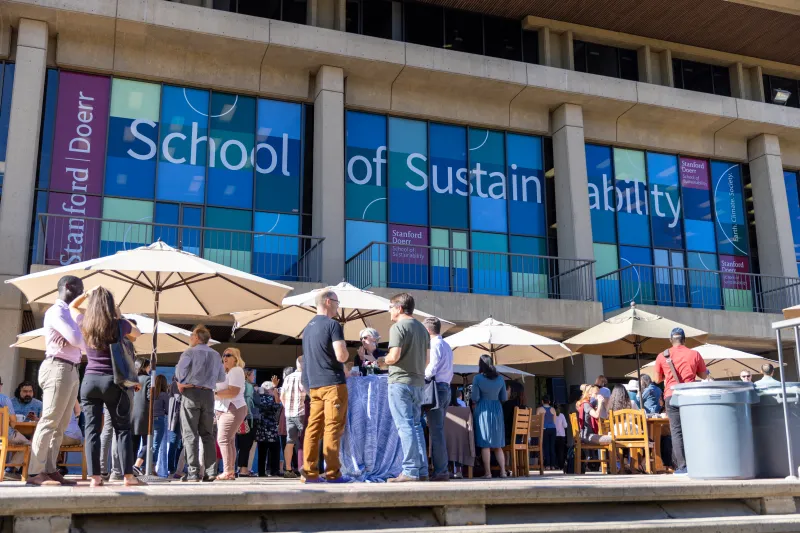The Doerr School of Sustainability announced plans to establish an Industrial Affiliates Review Committee (IARC), three faculty members who will provide oversight to Doerr’s Industrial Affiliates programs. The program facilitates exchange between Stanford researchers and corporations to create collaborative research opportunities for students, faculty and external companies.
Doerr boasts 15 Industrial Affiliate programs, sponsored by companies including Saudi Aramco, Chevron and Shell, according to the school’s website. According to data from the Stanford electronic Research Administration System (SeRA), fossil fuel companies contributed over $68 million to sponsored research in departments housed in the Doerr School of Sustainability.
According to the announcement, the IARC will review compliancy with University policies and make recommendations to improve the existing programs. The committee will produce a public report by the end of spring quarter.
Industrial Affiliates programs exist throughout the University’s STEM and social science departments, covering topics from long-term investing to mental health, but the IARC will focus solely on the Industrial Affiliates programs associated with Doerr.
Doerr’s announcement explained that the committee was formed as part of a broader effor to increase transparency surrounding funding sources and corporate affiliations, in response to an open letter calling for Doerr to cut ties with the fossil fuel industry. The letter, signed by hundreds of individuals with Stanford affiliation, was published in The Daily in May 2022.
Another letter to the editor, written by six graduate students at the Doerr in October, emphasized the importance of reviewing, and possibly altering, the Industrial Affiliates programs, which has historically included many fossil fuel stakeholders.
Across Doerr’s 15 programs, 14 have current industry affiliates. 12 of those programs have one or more fossil fuel companies listed as sponsors or affiliate members.
The opinion included five recommendations for Doerr: the first being an increased level of oversight for existing Industrial Affiliate programs to ensure compliance with University policies and procedures. The opinion further recommended dissociation from the fossil fuel industry, a move students have called for since the Doerr School of Sustainability opened.
According to the University’s announcement, the IARC will function separately from the existing Committee on Funding for Energy Research and Education (CFERE), which originated from the more general call for increased transparency.
Rebecca Grekin, a second year Ph.D. candidate in Energy Resources Engineering and one of six students who wrote the October letter to the editor, explained that the group has been working with CFERE over the past few months to review the affiliation of fossil fuel companies with clean energy research.
“This committee really targets our first bullet point, which was about enforcing the rules that already exist,” Grekin said, describing IARC as “enforcing what’s already in place.”
The IARC includes former Earth Sciences Dean Lynn Orr ’69, former Vice Provost and Dean of Research Ann Arvin and Director of University Corporate and Foundation Relations Brooke Groves-Anderson and a non-voting representative from the Doerr School staff.
“We wanted to make sure we’re doing a good job of being transparent and using the structures of the Affiliates programs in a way that’s consistent with university policy,” Orr said. “The [affiliations] I know well certainly are, but it’s a chance to take stock and make sure we’re doing what we promised.”
Orr explained that his familiarity with the affiliates programs comes from his time as a participant and earth sciences dean.
Orr said while the committee may find small reporting issues from Industrial Affiliations programs, he’s “not anticipating something that seems like we would terminate programs.”
However, Grekin and her colleagues urged for the university to extend oversight beyond the analysis set to be published at the end of spring.
Daly Wettermark M.S. ’24, another co-writer of the letter and a recent alum, cautioned against settling for a committee: “We have seen in other issues on campus that it is very easy to fall into the ‘death by committee’ approach, where we throw more committees at problems until the students that care about them graduate.”
Wettermark said students hoped to see progress beyond the new committee.
